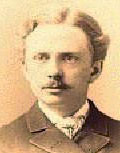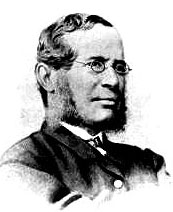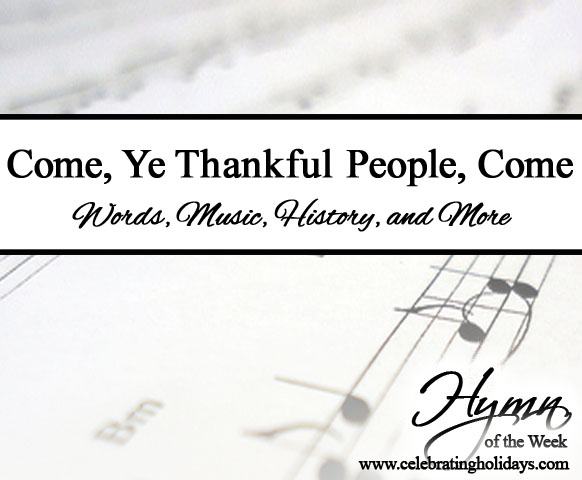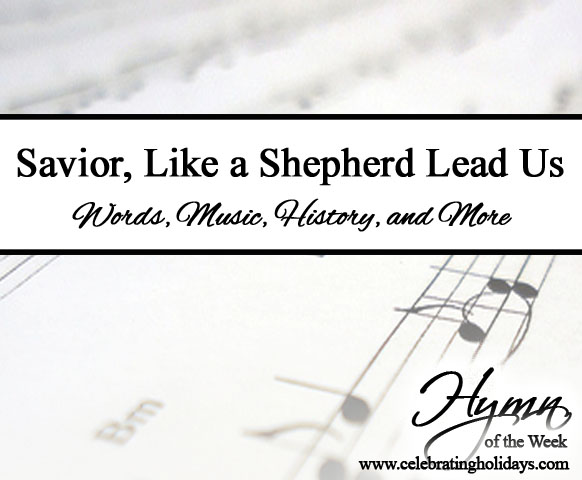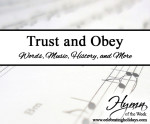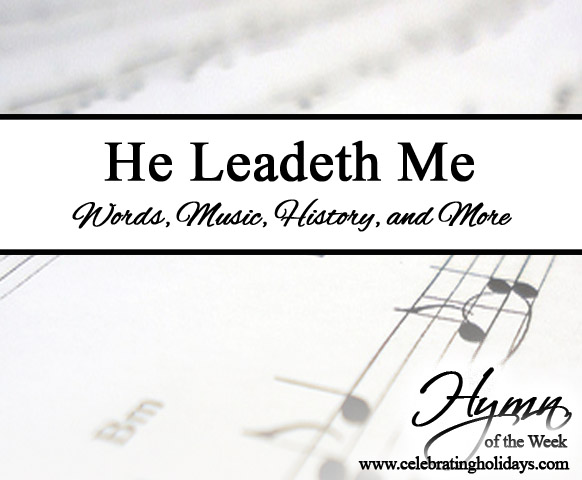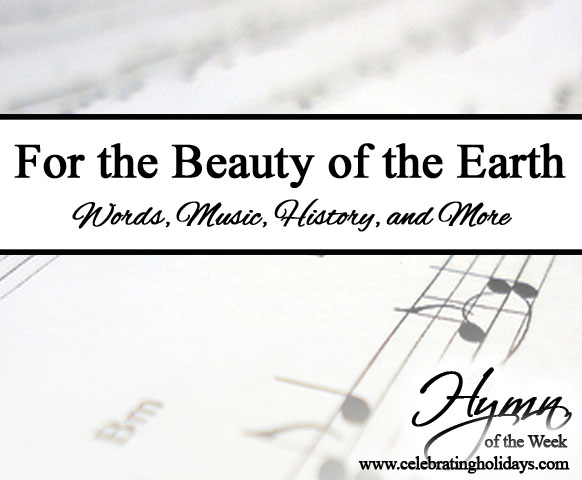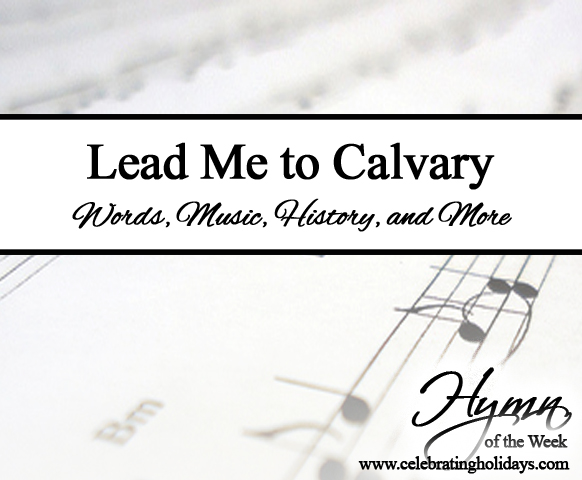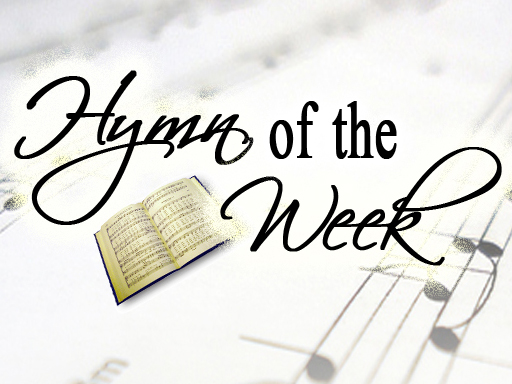Lead On, O King Eternal
This page includes a lyric video, history, sheet music, and other resources for the classic hymn “Lead On, O King Eternal.” Enjoy!
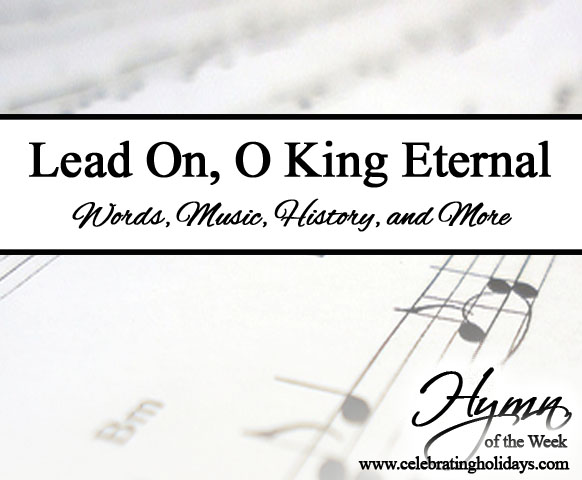
Enjoy this You Tube video, performed by Enfield, with lyrics for “Lead On, O King Eternal”:
History of “Lead On, O King Eternal”
Words by Ernest Warburton Shurtleff (1862-1917); Published in 1887
Ernest Shurtleff was born and raised in Boston, Massachusetts. He attended Harvard University and Andover Theological Seminary. It was for his graduation ceremony from Andover in 1887 that he wrote the hymn, “Lead On, O King Eternal.”
After being ordained as a Congregational pastor, Ernest served in churches across the country before moving to Germany in 1905 to help organize the American church there. One year later, in 1906, he accepted a position in Paris as the director of student activities in the Academy Vitti. He is said to have done “a remarkable work among the American students in Paris.”1
When World War I broke out, Ernest and his wife remained in Paris to help with relief work.2 Sadly, Ernest did not live to see the war end. He passed away in 1917. Though Ernest published a number of literary works during the course of his life, his most enduring work is the hymn he wrote for his seminary graduation, “Lead On, O King Eternal.”
Tune “Lancashire” by Henry Thomas Smart (1813-1879); Published in 1835
Henry Smart was born in England as the son of a talented violinist. Though he studied some music with his father, he was largely self-taught. Originally, Henry chose to study for a law degree. However, he eventually changed course and decided to pursue a career in music. He quickly developed a reputation as a gifted musician, and he served as the organist at a number of leading London churches. It is said that when he sought a position, other candidates would “quietly fade away.”3 Hymnologist William Jensen Reynolds records that Henry became “one of the finest organists of his day.”4 Additionally, Henry’s “advice and counsel were frequently sought for new organ installations in both England and Scotland,” and he personally designed some of the most famous organs in the region.5
Sadly, Henry struggled with poor eyesight for a number of years before he became almost totally blind (around 1865).6 However, “his memory and skill made it possible for him to continue playing” and to make significant contributions to the field of music.7 During the course of his life, Henry published (or worked as the musical editor) for several collections of music. He also composed a number works — the tunes for “Angels from the Realms of Glory” and “Lead On, O King Eternal” are among his most popular.
“Lancashire,” the tune for “Lead On, O King Eternal,” was originally composed in 1835 for a festival celebrating the 300th anniversary of the English Reformation. It was published in a leaflet for the occasion and was set to the words “From Greenland’s Icy Mountains.” The tune was named after the county Lancashire where Henry worked at the time of its composition. Seventy years later, the tune was paired with the words for “Lead On, O King Eternal” in The Methodist Hymnal (1905).
Additional Resources for “Lead On, O King Eternal”:
Sheet Music (PDF Compliments of Hymnary.org)
Guitar Chords (Links to Hymn Chords.net)
Visit Hymnary.org or Hymn Time.com for more on this hymn.
See our Hymn of the Week page for a list of the hymns that are included on this site.
This page was created by:

We welcome your ideas! If you have suggestions on how to improve this page, please contact us.
You may freely use this content if you cite the source and/or link back to this page.
Sources:
1 Reynolds, William Jensen. Hymns of Our Faith: A Handbook for the Baptist Hymnal. Broadman Press, 1964, p. 406.
2 Hustad, Donald P. Dictionary Handbook to Hymns for the Living Church. Hope Publishing Company, 1978, p. 317.
3 Keyte, Hugh and Parrot, Andrew, editors. The New Oxford Book of Carols. Oxford University Press, 1998, p. 351.
4 Reynolds, p. 408.
5 Ibid.
6 Ibid.
7 Ibid.
